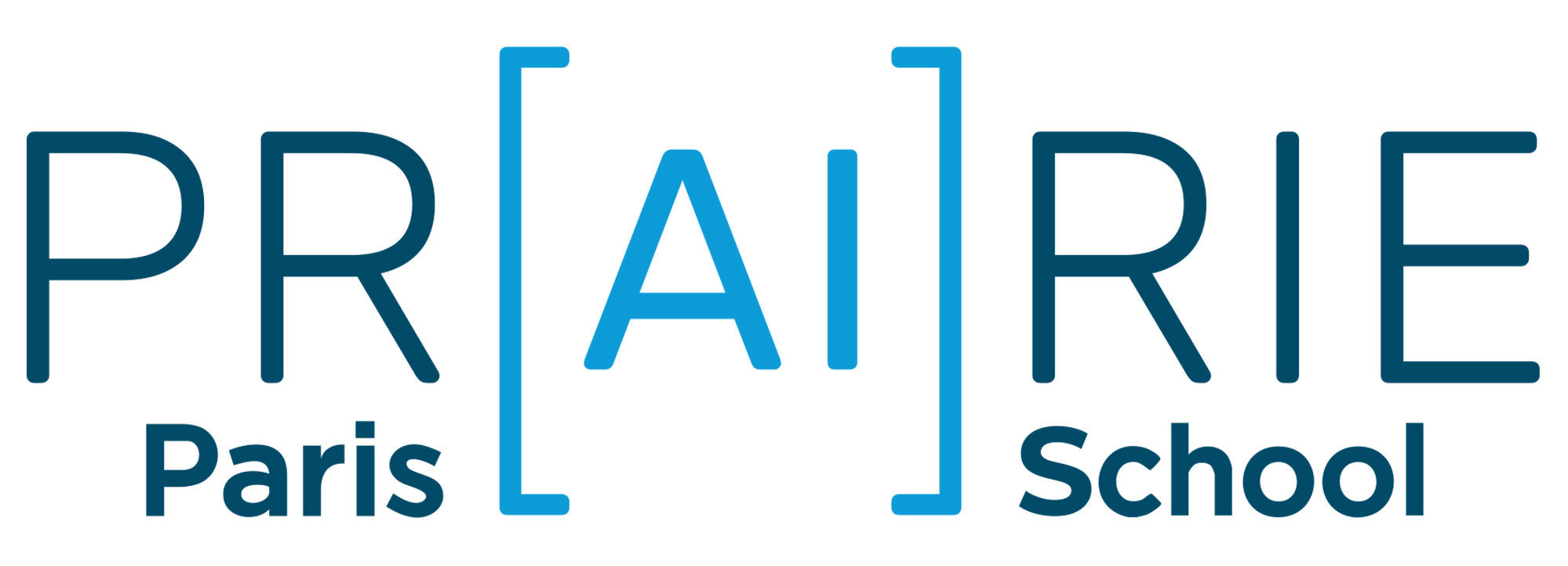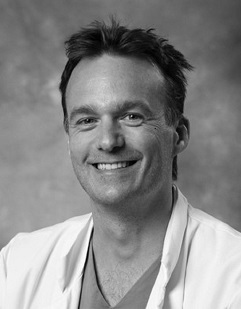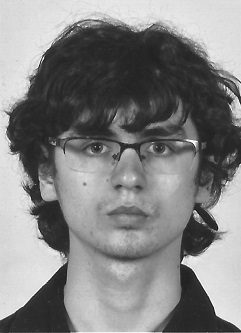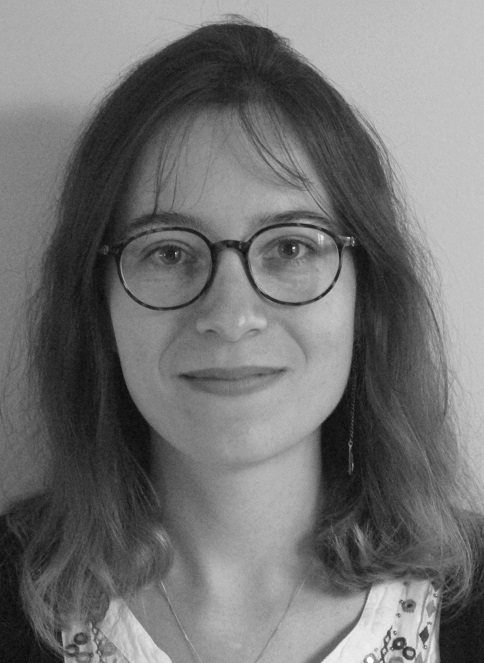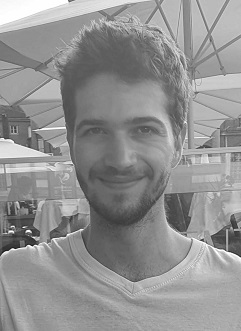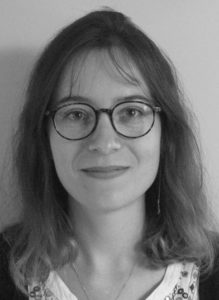FAVIEZ Carole
carole.faviez [at] inserm.fr
Short bio
PhD, Université Paris Cité
Research project
Diagnosis support of rare genetic diseases: design of diagnosis support algorithms based on hybrid methods combining symbolic artificial intelligence and machine learning.
Short abstract
Rare diseases affect approximately 400 million people worldwide. Many of them suffer from delayed diagnosis. In this context, the objective is to integrate expert knowledge about the disease within machine learning models reusing patient data from electronic health records (EHR) to design a diagnosis support system. The model, that is meant to be used in a clinical context, must be reliable, explicable, and interoperable with EHRs.
Clinical decision support
Clinical Decision Support systems refer to as a specific type of algorithms designed to assist healthcare professionals in making clinical decisions. CDS systems leverage patient-specific data which may be combined with medical knowledge, and best practices to provide timely and relevant information at the point of care. These systems can perform various functions, including: patient stratification for example for treatment recommendation, diagnosis anticipation, adverse event prevention, optimisation of patient pathways. Many AI methods may be involved in this field as NLP for medical report analysis, statistical modelling and learning to cluster patients and mimic the observations up to reinforcement learning to help for pathway optimisation.
CREMESE Robin
robin.cremese [at] pasteur.fr
Short bio
Master’s degree – INSA Toulouse
Thesis topic
Visualization and live segmentation from medical CT scans and MRIs: a new approach mixing probabilistic learning and Virtual reality.
Short abstract
Development of learning methods for optimal path planning in a constrained environment. Reinforcement Learning methods as well as physical simulations will be studied. Possible applications to the medical domain for the preventive planning of operations.
POULET Pierre-Emmanuel
pierre-emmanuel.poulet [at] inria.fr
Short bio
Ingénieur de l’Ecole Polytechnique
Master Mathématiques Vision Apprentissage (ENS Paris-Saclay)
Thesis title
Modelling the evolution of a multi-risk profile.
Short abstract
The objective is to develop non-linear mixed-effect models for longitudinal data in the context of neurodegenerative diseases. The models will then be used for prediction of the evolution of different medical observations and/or diagnosis.
GAUDFERNAU Fleur
fleur.gaudfernau [at] etu-paris.fr
Short bio
- Diplôme d’ingénieur (Institut des sciences et industries du vivant et de l’environnement – AgroParisTech)
- Master Mathématiques, Informatique, Décision et Organisation (Université Paris Dauphine-PSL)
- Master de sciences cognitives (CogMaster de l’ENS)
Thesis title
Detection and analysis of anomalies in fetal images for early diagnosis and care.
Short abstract
Agenesis of the corpus callosum is one of the most frequent fetal cerebral anomalies. It can cause motor, learning and social delays. This thesis aims at detecting automatically agenesis of the corpus callosum in fetal MRI, analyzing its temporal evolution during pregnancy, and correlating features extracted from the images with the children neurodevelopmental outcome. In a clinical setting, this would lead to a more precise diagnosis of the disease and prediction of its neurological impairments, ensuring an anticipated follow-up of the patients.
DECOUX Antoine
antoine.decoux [at] laposte.net
Short bio
Statistic Engineering Degree at Ecole National de l’Analyse de la Statistique et de l’Analyse de l’Information (ENSAI)
Thesis title
Choice of Strategy and application conditions of Machine Learning algorithms apply to radiomic data.
Short abstract
The goal is to study the effect of different methodological choices during the use of machine learning algorithms on radiomic data, especially on predictive power and reproductibility. Different problematics will be studied, including prediction of medical treatment outcome of immunotherapy for lung and kidney cancers.
BARRA Sérgio
sergioncbarra [at] gmail.com
Short bio
MD PhD (Faculty of Medicine, University of Porto)
Research project
Sudden cardiac death. Research Program on Artificial Intelligence Applied to Cardiac Rhythm Disorders.
Short abstract
The identification of individuals at
long-term risk of sudden cardiac death (SCD) is a difficult task. Our research
group has been focusing on pre-emptive risk stratification and prevention of
SCD by identifying sentinel events which frequently precede SCD, a task
facilitated by recent advances in communication and remote transmission
technologies. We hypothesise that it is possible to identify a high-risk group
of subjects at risk of SCD and thus apply immediate preventive therapies.
Application of artificial intelligence to continuous device monitoring may help
identify specific patterns prior to the occurrence of a fatal event. The DAI-PP
program (centralised at HEGP) has been initiated with a 2-year enrolment and
5-year follow-up of more than 5000 patients with implantable
cardioverter-defibrillators and remote continuous monitoring. Furthermore,
systematic collection of digital electrocardiograms is part of the prospective
Paris-Sudden Death Expertise Center registry, which collects all SCD since May
2011. An improved understanding of electrical signals and their dynamics prior
to the occurrence of a fatal arrhythmic event may allow a better triage and
identification of patients at high-risk of events.
My portfolio includes a number of high-impact publications in the field of SCD prediction in the heart failure setting, most of which focusing on patients with clinical indication for implantable cardioverter-defibrillators or cardiac resynchronization therapy devices. Most of this work was developed while I was working at the Royal Papworth Hospital NHS Trust, in Cambridge, UK, and done in collaboration with Professors Eloi Marijon and Serge Boveda.
PORCHER Raphaël
raphael.porcher [at] aphp.fr
Short bio
Associate Professor of Biostatistics at Paris Cité University, co-director of the Centre Virchow-Villermé Paris Berlin, and member of the METHODS team of CRESS-UMR1153. Member of the Comité d’Evaluation Ethique / Institutional Review Board of Inserm. Senior Associate Editor for Methods at Clinical Orthopaedics and Related Research, and Associate Editor for Statistics, Artificial Intelligence and Modeling Outcomes at the Journal of Hepatology.
Topics of interest
Machine learning, prediction, personalized medicine, causal inference
Project in Prairie
Raphaël Porcher will work on methods to identify optimal individualized treatment strategies using real-life observational data, as well as principled approaches to evaluate their performance and potential impact. He will participate in the teaching and training of medical students in AI and machine learning, and in interdisciplinary programs on AI and health.
Quote
Artificial intelligence represents an unprecedented opportunity for clinical decision support in medicine, and decision upon treatments in particular. Observational data are also an invaluable source of information to learn about treatment efficacy, but the methodological aspects of therapeutic evaluation, and the issues of confounding and bias in particular, should not be overlooked, especially in complex, time-dynamic, settings. They are central for clinical applicability and impact. Bringing together strong methodology, theories on causal inference, artificial intelligence and large-scale real-life data has the potential to improve how patients are treated and ultimately population health.
Team
BRION BOUVIER Florie
PhD Student
MARIJON Eloi
Cardiology, Cardiac Electrophysiology, Sudden Cardiac Death
eloi.marijon [at] aphp.fr
Short bio
Dr. Eloi Marijon is a cardiovascular and cardiac electrophysiology specialist, heading the Cardiac Electrophysiology Section at the European Georges Pompidou hospital in Paris. He is Professor of Cardiology at Paris City University, Senior Researcher at the Paris Cardiovascular Research Center (INSERM U970, Cardiovascular Epidemiology), and codirects the Paris Sudden Death Expertise Center (SDEC).
Topics of interest & Project in Prairie
Research Program on Artificial Intelligence Applied to Cardiac Rhythm Disorders and Sudden Cardiac Death.
Quote
Because efforts to improve prediction of individuals at long-term risk for sudden cardiac death (SCD) have been disappointing so far, we started an alternative approach aiming at pre-emptive risk stratification and prevention of SCD. We have focused on sentinel events preceding SCD, in light of recent advances in communication and remote transmission technologies, to eventually better identify patients at high risk of short-term SCD. Our main hypothesis is that it is possible to determine a high-risk group of subjects at risk of imminent SCD. Application of AI to continuous device monitoring of patients at high of ventricular fibrillation would allow the identification of a particular pattern prior the occurrence of the fatal event. National Consortium (DAI-PP program, centralized at HEGP) has just been initiated with a 5-year enrollment and a planed 10-year follow-up of 10000 patients with implantable cardioverter defibrillator and remote continuous monitoring. In addition, systematic collection of digital EKG in the field has been initiated part of the ongoing prospective Paris-Sudden Death Expertise Center registry, which collect all SCD since May 15, 2011 in the Great Paris Area. A better understanding of the electrical signal dynamics prior to the occurrence of ventricular fibrillation would allow a better triage and identification of high-risk patients.
Team
BARRA Sérgio
Postdoctoral researcher
MD PhD (Faculty of Medicine, University of Porto)
BURGUN Anita
anita.burgun [at] aphp.fr
Short bio
MD, PhD. Professor of Medical Informatics at Université de Paris. Chair of the Department of Medical Informatics at Georges Pompidou and Necker Hospitals (AP-HP). Leader of the «Information science to support personalized medicine» research group at Cordeliers Research Center.
Topics of interest
Medical decision, Electronic Health Records, Natural Language Understanding
Project in Prairie
Anita Burgun’s objectives are to develop AI systems that can be used to support medical decision in clinics, like hybrid approaches combining learning algorithms and logics. Examples are deep phenotyping based on the EHR, similarity metrics in rare diseases, and precision medicine. She will participate in AI programs for undergraduate and graduate medical students, as well as AI in medicine summer school.
Quote
The development of Artificial Intelligence for clinical decision cannot be achieved without hybrid approaches, to learn from a limited number of heterogeneous cases, with complex phenotypes, and complex underlying biological mechanisms. Solutions based on deep phenotyping are being investigated to solve a diagnostic or a therapeutic problem of a new patient by recalling previous cases that exhibited similar characteristics in rare disease clinical data warehouses. Future directions consist in developing digital twins solutions that integrate the precision medicine paradigm. Such approaches combine different methodologies, using holistic omics data, and existing data from clinical trials and routine care. Because of data complexity, multi-scale knowledge, and fast changing models, AI in medicine raises lots of issues that require multidisciplinary research at the highest level.
Team
LE PRIOL Emma
PhD student
Master’s degree : mathematics (Université Paris – Dauphine) and social sciences (Sciences Po Paris)
QUENNELLE Sophie
PhD student
Master 2 – Informatique biomédicale, Sorbonne Université, Paris
Docteur en cardiologie – Université Paris Cité
Ivan LERNER
PhD student
Diplôme d’etude supérieur de Santé Publique, Université Paris Descartes, 2020
Double-cursus Médecine-sciences, 2016, Université Paris Descartes
Master 2 de science-cognitives, 2013, École normale supérieure, Paris
ANDREW Judith Jeyafreeda
Postdoctoral researcher
FAVIEZ Carole
Postdoctoral researcher
ALLASSONNIÈRE Stéphanie
Statistics for medical data
stephanie.allassonniere [at] parisdescartes.fr
Short bio
Vice-President in charge of research economical transfer and industrial partnerships.
Professor of Mathematics at the School of Medicine, Paris Cité University and associated Professor in the applied Mathematics department of Ecole Polytechnique. Manager of master programs and masterclasses in AI in healthcare.
Topics of interest
Statistical modelling, stochastic optimization, MCMC samplers, medical data analysis.
Project in Prairie
Stéphanie Allassonnière will focus on understanding diseases response to treatments and propose decision support systems for diagnosis and therapy. This will involve statistical modeling of clinical data, stochastic estimation in particular using mixed effect models. These research axes will require theoretical and methodological developments towards medical transfer. She will also be in charge of several programs as Bioentrepreneur master degree, IA masterclasses for physicians and co-develop the health track of the existing MVA master program.
Quote
Artificial intelligence is not well appreciated by medical doctors who fear being replaced by computers. By contrast, I believe that AI represents a unique chance for caregivers to assist them to better detect and care patients. For practitioners to take on this opportunity, we need to develop more robust and interpretable methods than the current state-of-the-art. This is what I will do within PRAIRIE by fostering multidisciplinary collaborations with Paris hospitals. I will also develop innovative training programs within the medical school to bridge the gap between computer scientists and physicians.
Team
CHADEBEC Clément
PhD student
GAUDFERNAU Fleur
PhD student
